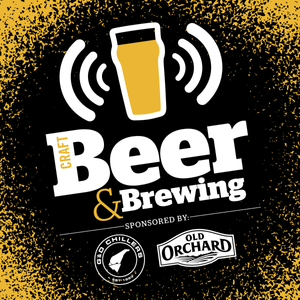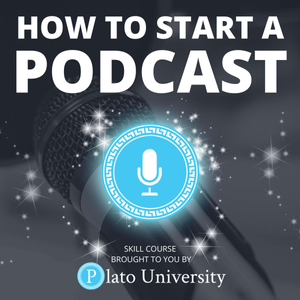
From Editor to Creative Partner - Redefining Roles in the Age of Automation
05/26/25 • 33 min
Episode 67 - From Editor to Creative Partner - Redefining Roles in the Age of Automation
The Evolving Role of Podcast Editors and Support Teams in the Age of AI
Podcasting is undergoing a profound transformation as artificial intelligence rapidly automates many technical aspects of production. Tasks that once took hours—such as noise reduction, audio leveling, and filler word removal—can now be accomplished in seconds with AI-powered tools like Descript, Adobe Podcast Enhance, and Auphonic
These advancements have made high-quality editing accessible to more creators, reduced reliance on traditional hourly editing services, and even introduced AI-generated voiceovers and automated guest-matching platforms.
Yet, this shift raises an urgent question for podcast editors and support teams: Where do humans fit in a landscape where so much of the technical work is being automated?
What AI Can—and Can’t—Do
AI excels at:
- Automating repetitive, technical editing tasks (e.g., removing ums, silences, leveling audio)
- Producing studio-quality sound from imperfect recordings
- Generating transcripts, show notes, and even social media content from raw audio
However, AI falls short in areas that require:
- Deep understanding of narrative flow and storytelling nuance.
- Emotional intelligence, coaching, and motivation.
- Building genuine human connection and fostering community.
- Providing personalized feedback, encouragement, and creative collaboration
As one industry analysis notes, “Listeners value human experience. Lived experience is what allows you to share personal stories, anecdotes and other things that create a powerful and relatable connection between you and your audience. Experience is something that AI categorically can’t have”
The Future Role of Editors and Support Teams
1. Human-Centered Coaching and Creative Direction
- Editors and support teams can act as creative partners, helping hosts shape their story, refine their message, and develop their unique voice—something AI cannot replicate
- Providing coaching, motivation, and constructive feedback to help podcasters grow in confidence and skill
2. Community Building and Relationship Management
- Supporting podcasters in building engaged communities around their shows, facilitating listener interaction, and nurturing a sense of belonging
- Offering guidance on audience engagement strategies, live events, and collaborations.
3. Quality Assurance and Brand Consistency
- Ensuring episodes meet a consistent standard of quality and align with the podcaster’s brand identity—tasks that require subjective judgment and a nuanced understanding of the show’s goals.
4. Handling Complex and Sensitive Content
- Editing for tone, context, and sensitivity in episodes that address nuanced or controversial topics, where human judgment is essential.
5. Innovation and Customization
- Developing new show formats, experimenting with storytelling techniques, and pushing creative boundaries beyond the capabilities of preset AI templates.
What Podcasters Need from Support Teams Now
As AI democratizes access to technical editing, podcasters increasingly seek support teams who can:
- Serve as trusted creative collaborators and sounding boards.
- Offer tailored coaching, encouragement, and mindset support—especially for new creators.
- Help with strategic planning, guest curation, and audience development.
- Provide a human touch in an increasingly automated world.
Where Editors Go From Here
Podcast editors and support teams should lean into the uniquely human skills that AI cannot replicate:
- Develop expertise in coaching, creative consulting, and community management.
- Position themselves as partners in the podcaster’s journey, not just technical service providers.
- Embrace AI as a tool for efficiency, freeing up time to focus on higher-value, human-centric services
In summary, while AI is revolutionizing the technical side of podcast production, the future for editors and support teams lies in embracing the roles of coach, creative partner, and community builder—delivering the irreplaceable human value that technology cannot
https://www.thepodcasthost.com/business-of-podcasting/ai-replace-podcasters/
https://www.cuepodcasts.com/post/podcast-editing
___
Episode 67 - From Editor to Creative Partner - Redefining Roles in the Age of Automation
The Evolving Role of Podcast Editors and Support Teams in the Age of AI
Podcasting is undergoing a profound transformation as artificial intelligence rapidly automates many technical aspects of production. Tasks that once took hours—such as noise reduction, audio leveling, and filler word removal—can now be accomplished in seconds with AI-powered tools like Descript, Adobe Podcast Enhance, and Auphonic
These advancements have made high-quality editing accessible to more creators, reduced reliance on traditional hourly editing services, and even introduced AI-generated voiceovers and automated guest-matching platforms.
Yet, this shift raises an urgent question for podcast editors and support teams: Where do humans fit in a landscape where so much of the technical work is being automated?
What AI Can—and Can’t—Do
AI excels at:
- Automating repetitive, technical editing tasks (e.g., removing ums, silences, leveling audio)
- Producing studio-quality sound from imperfect recordings
- Generating transcripts, show notes, and even social media content from raw audio
However, AI falls short in areas that require:
- Deep understanding of narrative flow and storytelling nuance.
- Emotional intelligence, coaching, and motivation.
- Building genuine human connection and fostering community.
- Providing personalized feedback, encouragement, and creative collaboration
As one industry analysis notes, “Listeners value human experience. Lived experience is what allows you to share personal stories, anecdotes and other things that create a powerful and relatable connection between you and your audience. Experience is something that AI categorically can’t have”
The Future Role of Editors and Support Teams
1. Human-Centered Coaching and Creative Direction
- Editors and support teams can act as creative partners, helping hosts shape their story, refine their message, and develop their unique voice—something AI cannot replicate
- Providing coaching, motivation, and constructive feedback to help podcasters grow in confidence and skill
2. Community Building and Relationship Management
- Supporting podcasters in building engaged communities around their shows, facilitating listener interaction, and nurturing a sense of belonging
- Offering guidance on audience engagement strategies, live events, and collaborations.
3. Quality Assurance and Brand Consistency
- Ensuring episodes meet a consistent standard of quality and align with the podcaster’s brand identity—tasks that require subjective judgment and a nuanced understanding of the show’s goals.
4. Handling Complex and Sensitive Content
- Editing for tone, context, and sensitivity in episodes that address nuanced or controversial topics, where human judgment is essential.
5. Innovation and Customization
- Developing new show formats, experimenting with storytelling techniques, and pushing creative boundaries beyond the capabilities of preset AI templates.
What Podcasters Need from Support Teams Now
As AI democratizes access to technical editing, podcasters increasingly seek support teams who can:
- Serve as trusted creative collaborators and sounding boards.
- Offer tailored coaching, encouragement, and mindset support—especially for new creators.
- Help with strategic planning, guest curation, and audience development.
- Provide a human touch in an increasingly automated world.
Where Editors Go From Here
Podcast editors and support teams should lean into the uniquely human skills that AI cannot replicate:
- Develop expertise in coaching, creative consulting, and community management.
- Position themselves as partners in the podcaster’s journey, not just technical service providers.
- Embrace AI as a tool for efficiency, freeing up time to focus on higher-value, human-centric services
In summary, while AI is revolutionizing the technical side of podcast production, the future for editors and support teams lies in embracing the roles of coach, creative partner, and community builder—delivering the irreplaceable human value that technology cannot
https://www.thepodcasthost.com/business-of-podcasting/ai-replace-podcasters/
https://www.cuepodcasts.com/post/podcast-editing
___
Previous Episode

When to Fire a Podcast Client - Protecting Your Business and Sanity
Episode 66 - When to Fire a Podcast Client - Protecting Your Business and Sanity
Knowing when to end a client relationship as a podcast editor or support person is a tough but sometimes necessary step to protect your business, reputation, and well-being. Here’s a practical guide on when to consider letting a client go, how to do it professionally, and what you can try before making the final call.
When to Consider Firing a Podcast Client
- Consistent Payment Issues: Chronic late payments, missed invoices, or clients who go silent when it’s time to pay signal a lack of respect for your work and time
- Disrespecting Boundaries: Clients who ignore agreed-upon communication times, demand last-minute changes, or disrespect your personal time create ongoing stress and instability
- Unreasonable Demands or Impossible to Satisfy: If a client is never happy, constantly nitpicks, or makes unrealistic requests, it can drain your energy and impact your other work
- Breach of Contract or Unethical Behavior: Any violation of your agreement or inappropriate conduct is a clear line in the sand
- Toxic or Abusive Behavior: Verbal abuse, harassment, or bullying is never acceptable and should prompt immediate action
What Might Save the Relationship Before Letting Go
- Open Communication: Clearly express your concerns and ask if the issues can be resolved. Sometimes, a candid conversation can reset expectations and boundaries
- Revisit Boundaries and Expectations: Remind the client of your original agreement, deadlines, and communication protocols. Setting or reinforcing boundaries can sometimes correct problematic behavior
- Offer Solutions: Propose changes to the workflow or suggest a different package or service level that better suits their needs.
- Mediation or Third-Party Referral: If the fit isn’t right but the client isn’t inherently difficult, refer them to another editor or support person who might be a better match
How to Let a Client Go Professionally
- Review Your Contract: Check for termination clauses, notice periods, and any final payment or deliverable requirements
- Communicate Directly: Whenever possible, deliver the message in person or via a call—tone and empathy matter. Keep it factual, brief, and professional
- Document Everything: Keep written records of all communications, invoices, and the termination notice to protect yourself if disputes arise
- Settle Finances: Send a final invoice or refund as appropriate. Make sure all financial matters are resolved cleanly
- Offboard Smoothly: Remove the client from your systems, revoke access to shared files, and provide any necessary handover information
- Wish Them Well: End on a positive note for your reputation and future referrals, even if the relationship was difficult
Example Script
“Hello [Client Name], I appreciate the opportunity to work together. After careful consideration, I believe it’s in both our best interests to end our working relationship. I’ll ensure a smooth transition and am happy to recommend another service provider if you wish. Thank you for your business, and I wish you all the best moving forward.Key Takeaway
Firing a client should be a last resort after clear communication and boundary-setting. If you do need to part ways, approach the process with professionalism and empathy—protecting both your peace of mind and your reputation in the industry
___
___
https://podcasteditingandsupport.com/
Our new home for this podcast - Captivate.fm
We are proud affiliates of Captivate.fm, our recommendations are based on our knowledge and experience with them and their services - using this link will earn us a commission at no extra cost to you
If you like this episode you’ll love

The Torch: The Great Courses Podcast

CodeWinds - Leading edge web developer news and training | javascript / React.js / Node.js / HTML5 / web development - Jeff Barczewski

Craft Beer & Brewing Magazine Podcast

How To Start A Podcast

Research in Action | A podcast for faculty & higher education professionals on research design, methods, productivity & more
Episode Comments
Featured in these lists
Generate a badge
Get a badge for your website that links back to this episode
<a href="https://goodpods.com/podcasts/podcast-editing-and-support-true-media-solutions-451211/from-editor-to-creative-partner-redefining-roles-in-the-age-of-automat-92969286"> <img src="https://storage.googleapis.com/goodpods-images-bucket/badges/generic-badge-1.svg" alt="listen to from editor to creative partner - redefining roles in the age of automation on goodpods" style="width: 225px" /> </a>
Copy
